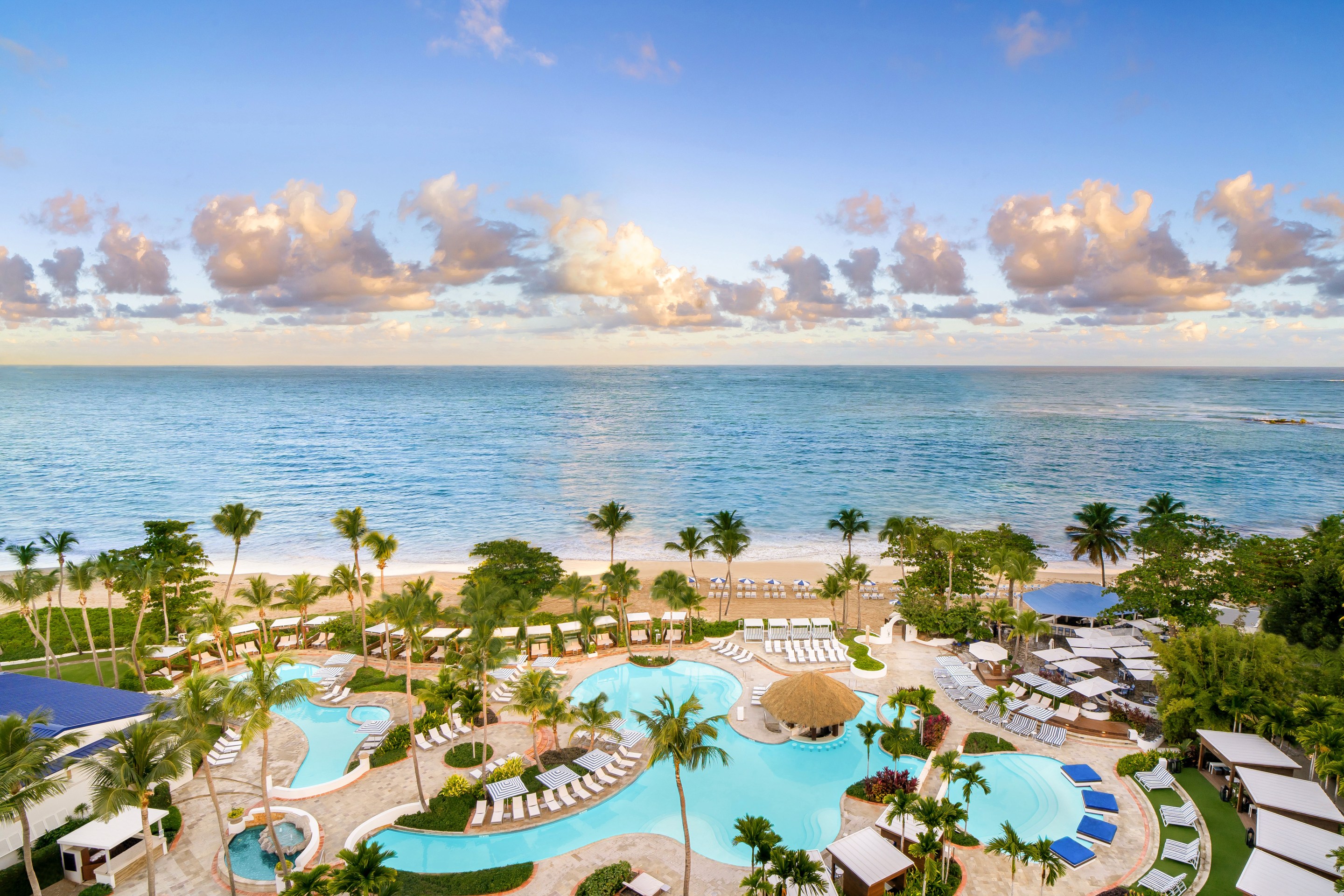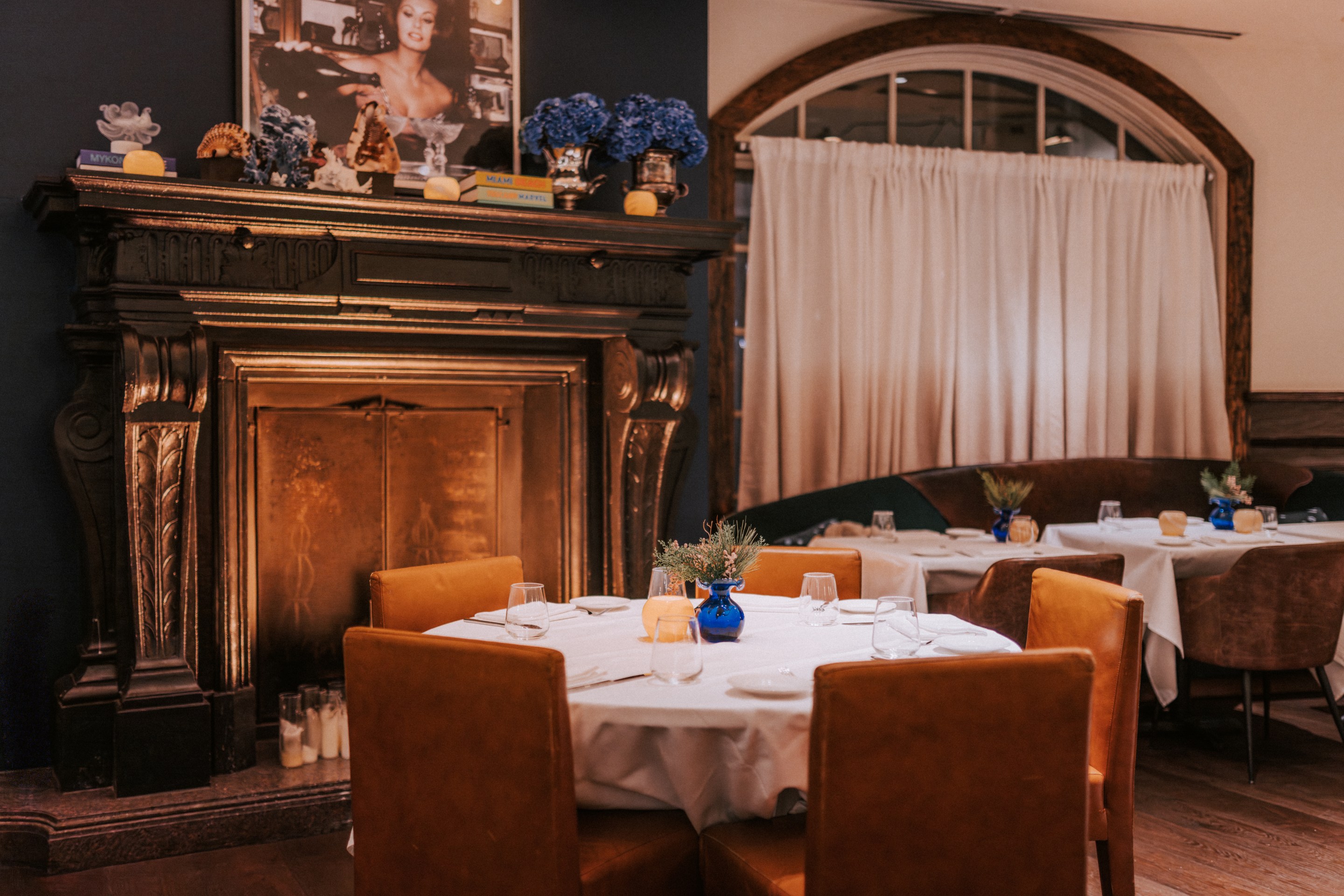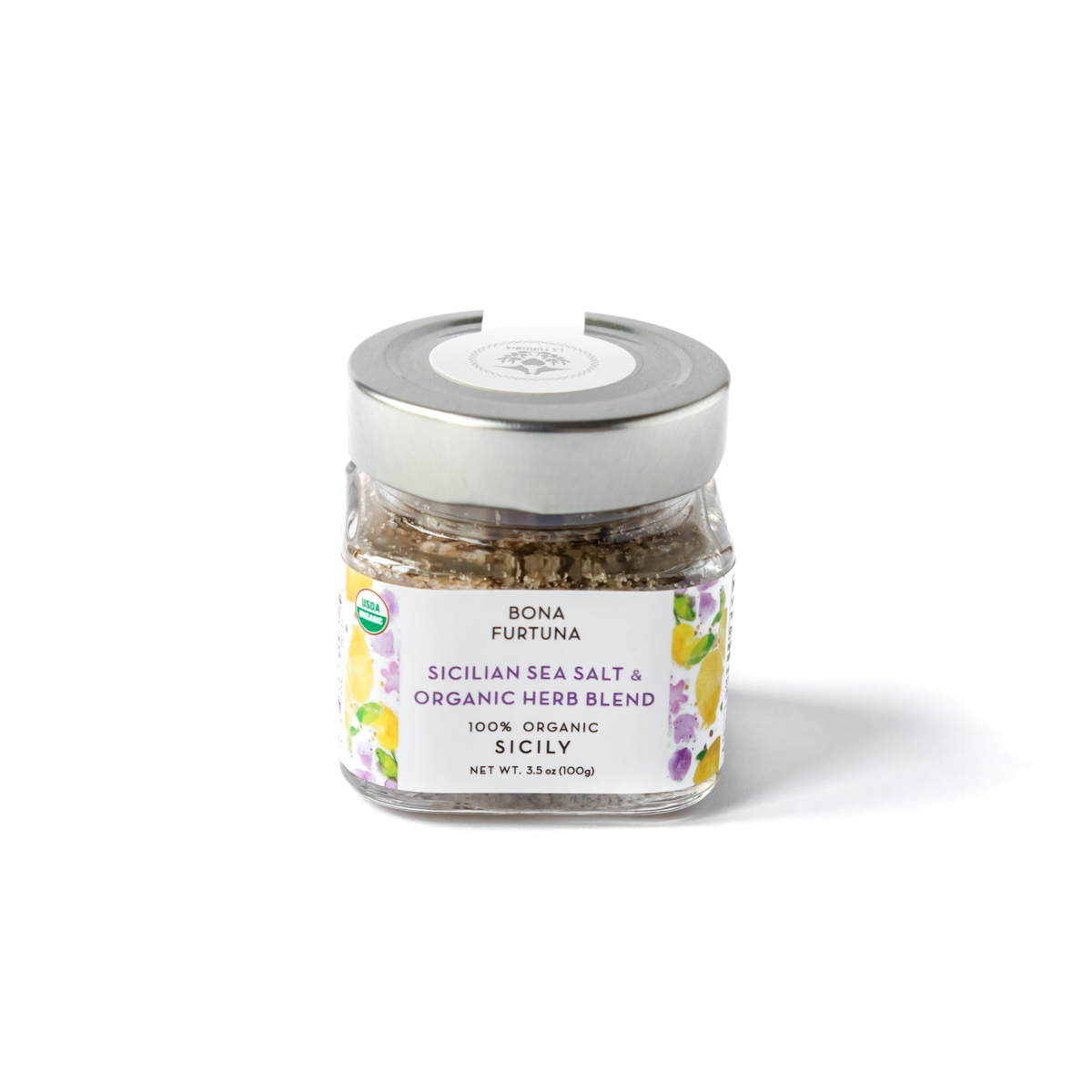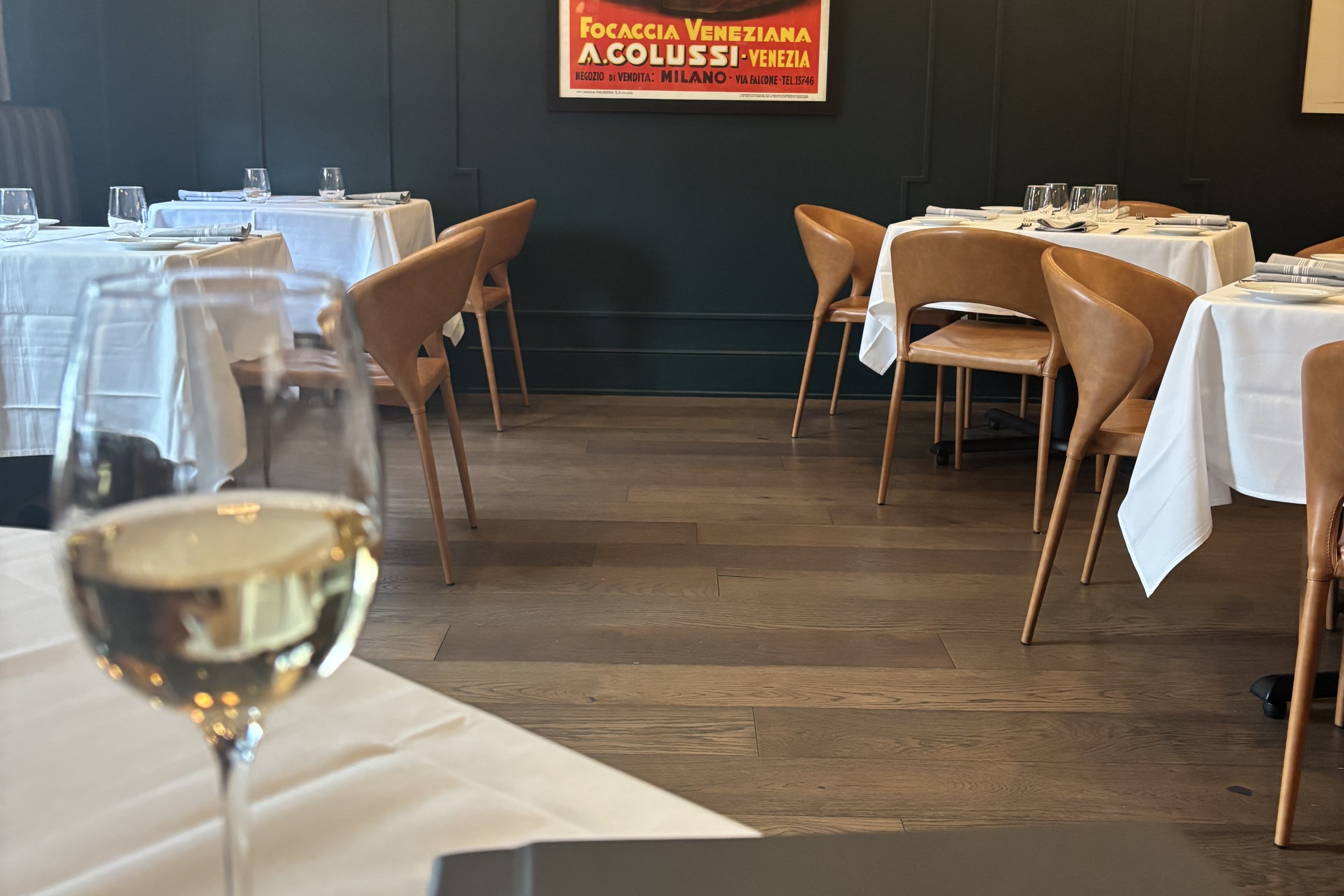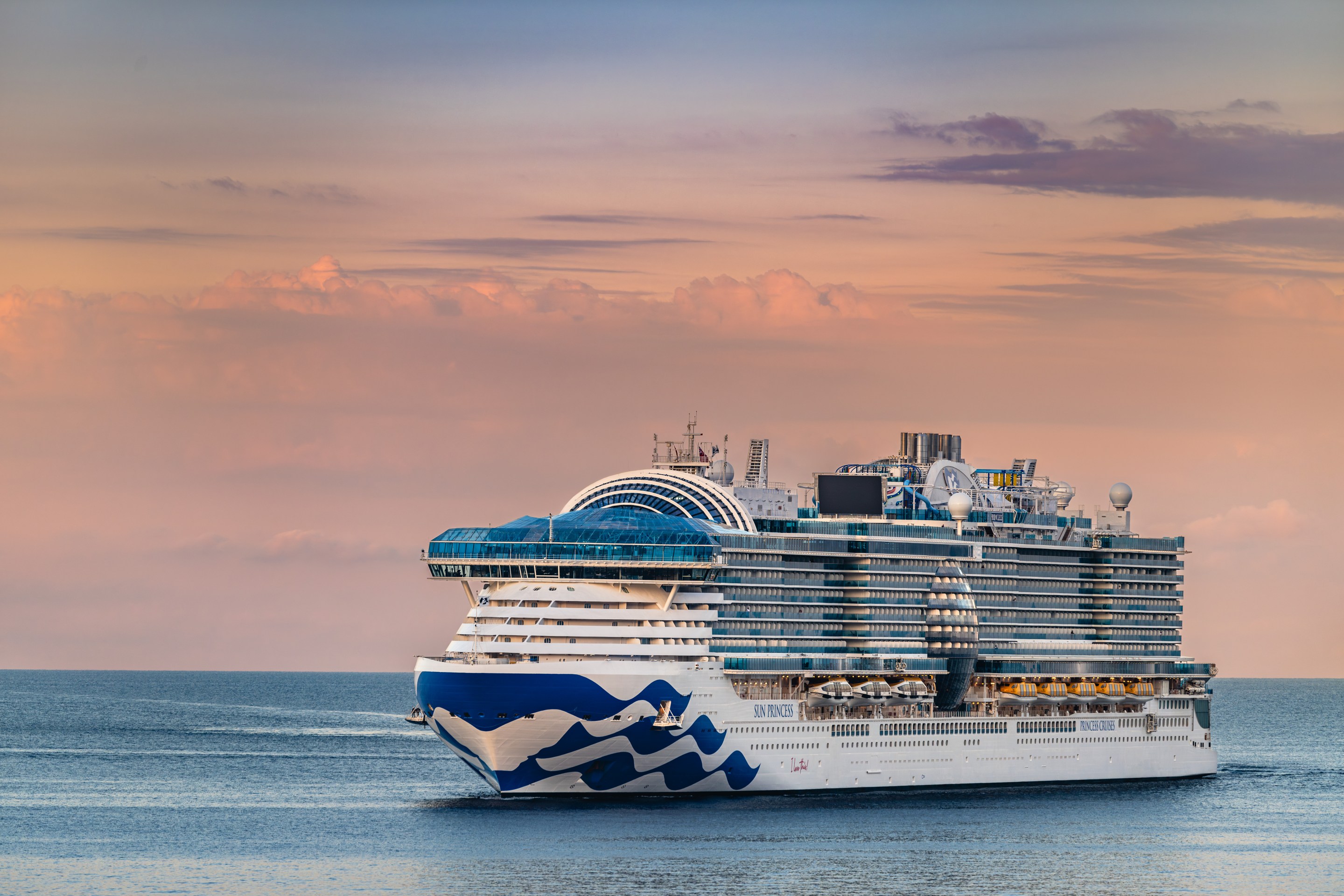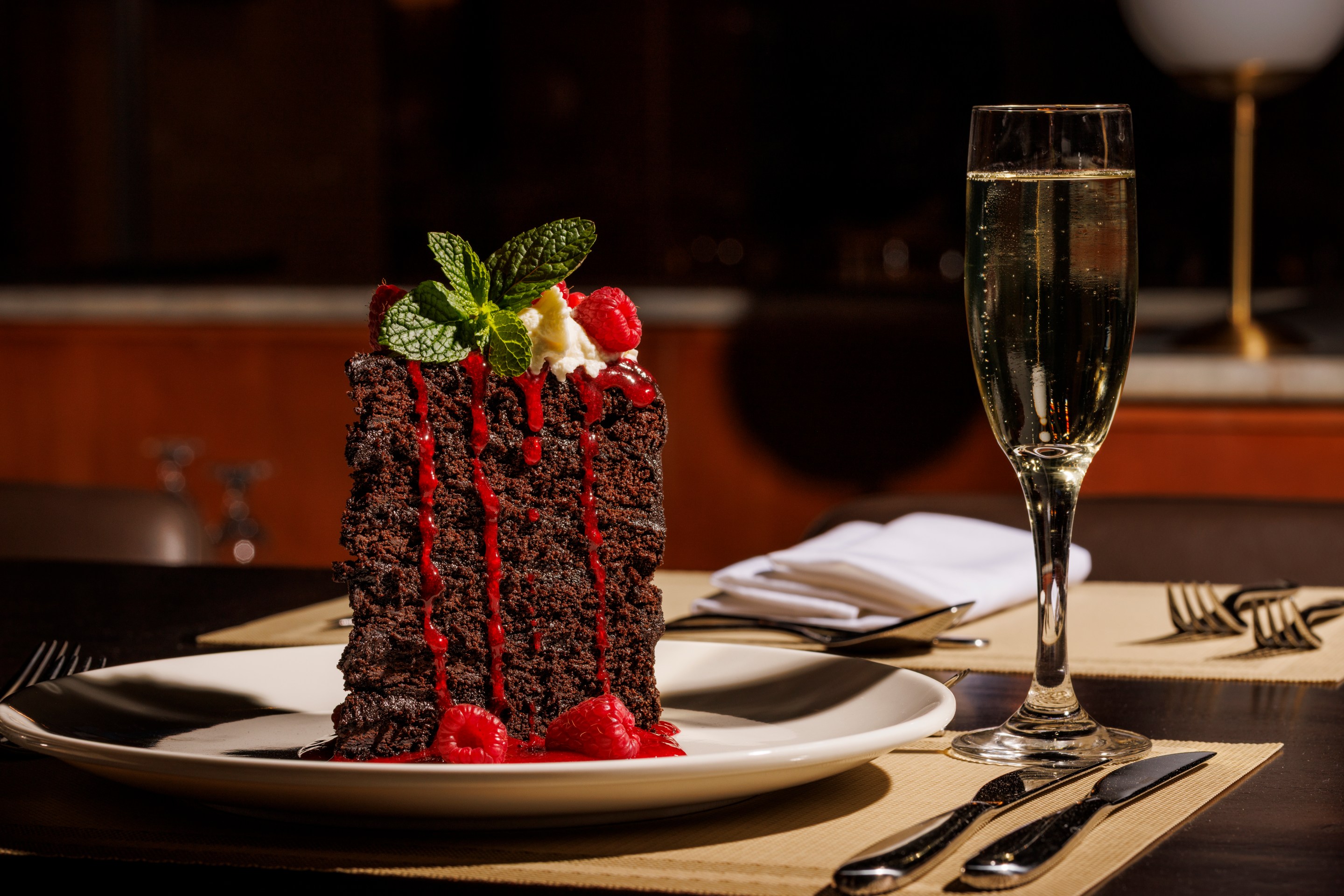Estate - Summer. We are amid sizzling temperatures, plenty of humidity, summer rain showers, and, well, pure bliss (for those who love summer). As for me, I find myself daydreaming of the golden light of summer casting its glow upon the blue-green hues of the Mediterranean Sea, reminiscing about a summer past that I spent with Laurel Evans.
In my reminiscing, I long to transport you - if only through the kitchen - to Liguria’s sun-kissed coast, where pesto is sacred, focaccia is poetry, and seaside dining is a way of life.
I'd like to take you on a journey with me, for those who daydream of traveling to Liguria, or for those who wish to return. It is my pleasure to introduce you to my dear friend Laurel Evans, acclaimed author of Liguria: The Cookbook: Recipes From The Italian Riviera. Together, we invite you to bring the coastal magic of Liguria home.
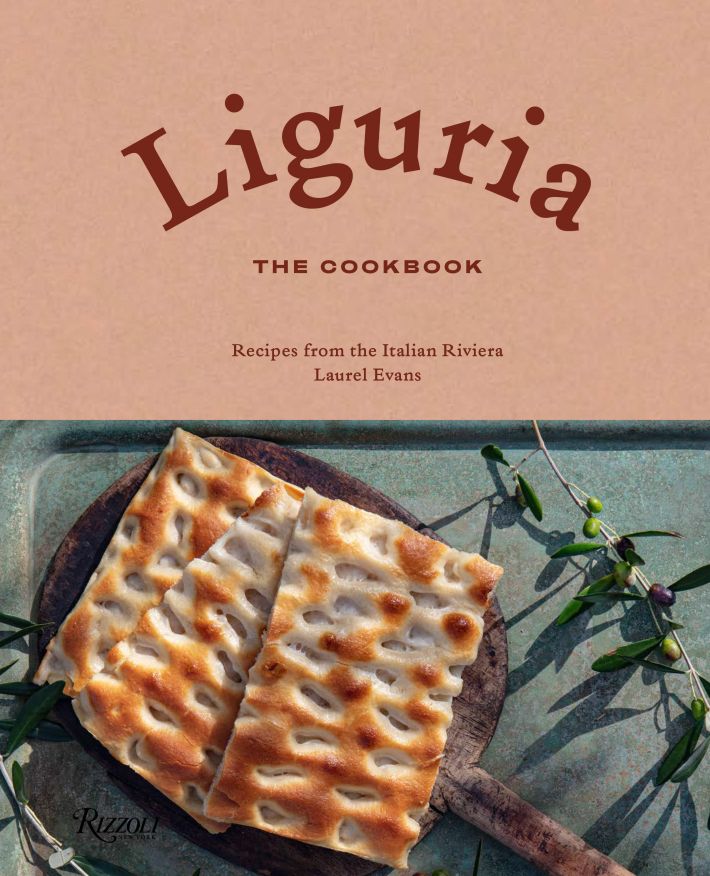
In my conversation with my fellow Rizzoli author, I ask Laurel to take us on a seaside journey. The Milan-based Texas native shares how to channel the spirit of the Italian Riviera through simple, stunning seasonal dishes. TSA PreCheck? Check! No plane ticket required.
As I sit down with Laurel, I can hear the sea’s symphony calling me, and questions begin to form in my mind… I couldn't resist. I had to jump right into our conversation:
Laurel, I'm thrilled to bring the Rivera into kitchens all over the world. With that being said, how did Liguria steal your heart - and your palate?
It’s so easy to fall in love with Liguria - the colors, the sea air, the fresh flavors… It stole my heart quietly, over time and many meals shared. I think I was fascinated by the food culture because, besides pesto and focaccia, it wasn’t well known outside the region. Liguria is surrounded by some of the best eating destinations on the planet: France, Piedmont, Emilia-Romagna, Tuscany, and has nothing to envy any of them when it comes to their food. Yet Liguria has been largely overlooked from a culinary standpoint. Ligurian cooking is resourceful, seasonal, plant-forward, and deeply tied to place. It’s a treasure trove of recipes and traditions that deserve more attention.

Your cookbook is both culinary and cultural. What do you want American readers to “feel” when they cook from it?
I want my readers to feel a strong sense of place - that was important to me from the beginning of the entire process. I wanted the book to be transportive and evocative, so that people who have been to Liguria would feel transported back there, and for readers who have never been to search for airline tickets after flipping through my pages.
Pesto is perhaps Liguria’s most famous export. What’s the secret to making it sing at home?
The secret to great pesto, like most dishes, is to use great ingredients. Seek out the youngest, tenderest sweet basil leaves, aged Parmigiano Reggiano, real pecorino Fior Sardo, Italian pine nuts and, of course, a high-quality Italian (preferably Ligurian) extra virgin olive oil. Garlic is a must, but don’t overdo it. The other big secret is to keep it cool! The heat caused by the friction of food processor blades can wreak havoc on delicate basil leaves, oxidizing them, ruining their flavor, and turning them dark brown. The solution? Chill the blades in the freezer for 30 minutes before starting, and add cold olive oil while blending to keep the temperature down. The full recipe is included in my book, both the food processor version and the mortar and pestle version. The latter is a must-try if you have the opportunity - the flavor and texture are unparalleled.
Cooking pesto is a big no-no. All that hard work we did to keep it cool while blending, just to throw it in the oven on top of pizza? No way. Drizzle it over your cooked pizza after it comes out of the oven! Remember to thin it out with a splash of pasta water until it reaches the creamy, desired texture.
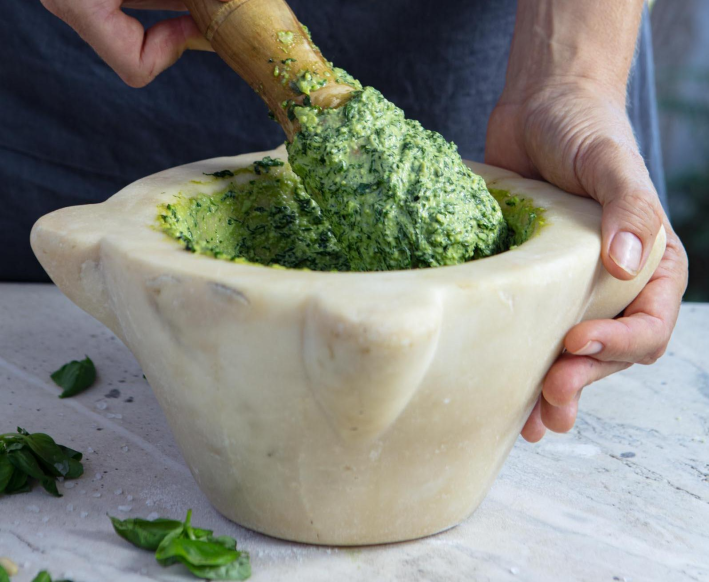
Which dish from the book is ideal for those new to Ligurian cooking?
I think you should start with the pesto! Everyone knows pesto, but when made correctly with just a few tips and tricks (like the ones I mentioned above), it can be a complete showstopper.
How do you translate the simplicity of Ligurian cuisine for an American kitchen without losing its soul?
The recipes are written to be fully replicable in a US kitchen, without compromising the authenticity of the dish. Obviously, some of the ingredients in Ligurian cuisine will be harder to come by in the US (fresh anchovies, stracchino cheese, etc), so I have tried to provide appropriate substitutions when possible. Other recipes, which relied too heavily on ingredients almost impossible to procure stateside, I simply didn’t include in the book.
Focaccia: plain, stuffed, or crowned with olives - what’s your favorite version and any tips for perfecting it?
I really love plain focaccia, and would urge everyone to start there. This is not a recipe for beginners: it is labor intensive and requires patience and practice – but is well worth the effort! In terms of tips or tricks, I don’t really have any specific ones. I would suggest following the recipe as closely as possible, paying attention to the details, and if it doesn’t come out perfectly the first time, try and try again!
What key pantry items should we stock to evoke Liguria anytime, anywhere?
Pine nuts, high quality evoo (Italian or preferably Ligurian from taggiasca olives), Parmigiano Reggiano (aged at least 24 months), pasta (rigorously Italian, high-quality, durum-wheat), breadcrumbs, anchovies, olives.
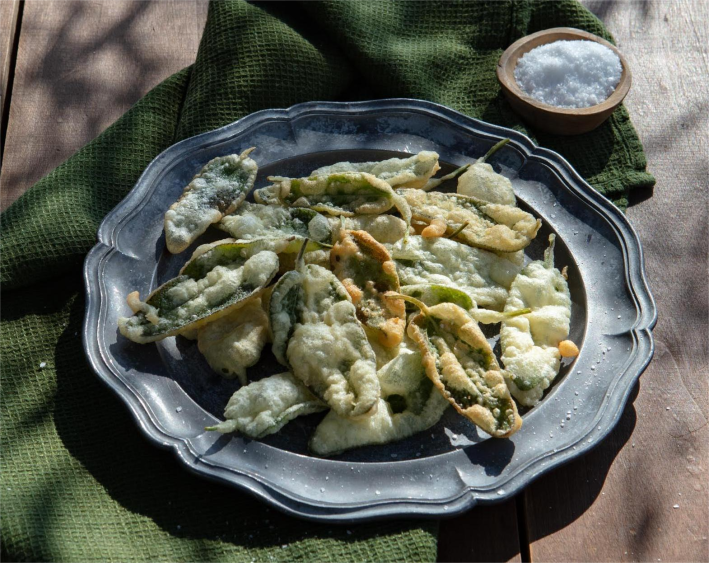
Beyond food - how can we set the scene for a Riviera-style gathering at home?
As with any Italian gathering, think in courses. You want dinner to last for hours, it’s a marathon not a race! Aperitivo can be standing, but the other courses should be seated, with time to digest and discuss in between dishes. Plates should be changed for every course. You don’t want to mix flavors! Common colors are blue and white – seaside inspired. White wines from Liguria: Vermentino, Pigato, Bianchetta, etc
Laurel, please create the perfect summer menu using recipes from your cookbook, Liguria: The Cookbook (Rizzoli), that will inspire readers who aren't traveling this summer to bring Liguria to their home kitchen.
Fried sage leaves - Page 30
I love to greet my guests with a platter of fried sage and a crisp glass of vermentino. Sage, which is overpoweringly pungent and almost inedible when raw, enjoys the most beautiful metamorphosis when fried. It has enough flavor and consistency to stand up to the high heat, yet its boldness mellows, and the leaves turn irresistibly crisp.
Trenette with Pesto, Green Beans, and Potatoes - Page 69
A beautiful plate of Trenette (a linguine-type pasta) with pesto, green beans and potatoes. You can also sub the green beans with zucchini matchsticks if you prefer.
Ripieni di verdura (stuffed summer vegetables: bell peppers, onions, and zucchini) - Page 145
Ripieni di Verdura (stuffed, seasonal vegetables). Bell peppers, onions and zucchini are my favorites for this recipe. It’s often served as an antipasto as well, but for this menu I think it works well as a lighter second course and it's vegetarian.

Pinolata della Val d’Aveto (pine nut and almond tart) - Page 206
My Pinolta della Val d'Aveto (pine nut and almond tart) is also a crowd-pleaser. Otherwise, grilled peaches with a scoop of gelato alla crema are always a big hit.
If readers want to take it one step further… What would The Tucci Touch be?
The next step is to come here and live it yourself! But I encourage you to go deeper, avoid the tourist traps and seek out the spots locals love.
Word on the sea's waves is that you are taking it one lap further- by starting a culinary journey.
Yes! I’ve started offering private food tours for couples or small groups in some of my favorite spots in Liguria (Camogli, Genoa, and beyond). If you’re planning a trip and want a more local, immersive experience, definitely get in touch. I also host weeklong culinary retreats with my husband, Emilio Scoti, who was born and raised in Liguria. These are intimate, hands-on, and deeply rooted in the region. We eat ridiculously well, meet incredible producers, and explore the hidden side of the Italian Riviera.
You can find more info or reach out to Laurel directly through her website, laurelevans.com. For more information on Max Tucci visit www.maxtucci.com.

